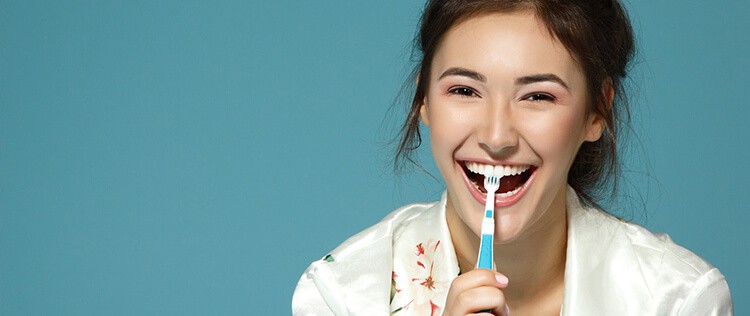Oral and Dental Health for Young People
During adolescence, the body changes and develops to a great extent. Young people consume a lot of energy during this period. Young people should pay attention to the factors that will support their oral and dental health in order to achieve healthy development, aesthetic appearance and the necessary energy. These are as follows:

Nutrition – In general, young people neglect healthy and balanced nutrition. Since they spend most of their time outside, they eat outside. The foods they consume are unhealthy foods, which we generally call fast food.
Most of the young people do not have routine habits such as sleep patterns and regular and healthy eating without skipping meals. Besides this unbalanced lifestyle, they can also tend to bad habits. In other words, bad habits such as unbalanced and unhealthy diet and smoking cause unhealthy growth of young people. This unhealthy lifestyle invites dental and gingival diseases.
The body is a whole, and a health problem that arises in one area affects other areas as well. Unhealthy nutrition causes unhealthy oral and dental health.
Education and Recreation – Teenagers spend most of their time in school. They participate in various sports or art activities when they are out of school, and participate in various meetings and activities to maintain their social life. While continuing their education and entertainment activities, they may neglect oral and dental health, which is the most important pillar of personal care.
Today, the internet has a great influence. It is possible to sleep without brushing the teeth, especially after the time spent on the internet before going to sleep. This means that your teeth are exposed to bacteria all night long.
Tooth Brushing Habit – The main reason for dental health problems in adolescence is the incomplete brushing habit. Many adolescents neglect tooth brushing for various reasons, paving the way for cavities and gingival disease. Dental hygiene should be a routine that begins in infancy and the habit of cleaning is subconscious. The ideal is to brush the teeth at least 2 times a day for 2-3 minutes.
Hormonal Factors – Intense hormonal changes occur during puberty, during the body’s change and development. There is a sudden increase in hormones. Therefore, dental and gingival problems can be more than normal due to hormonal imbalances.
20 Wisdom teeth – The 20-year-old teeth located at the back of the jaw are called the wisdom tooth or the third molar tooth. They usually come out between the ages of 17-25 and do not come out until late, and they wait in a buried state. These teeth usually take time to erupt and are painful. Painkillers or gargling with warm salt water can help relieve pain.
Although it is not problematic for everyone, discomfort such as swelling, tenderness, difficulty in opening the mouth, bad odor, bad taste, and pain is frequently observed during the eruption of the 20-year-old tooth. Since they are located at the end of the tooth alignment in the mouth, it is difficult to provide hygiene. When hygiene is not provided, wisdom teeth can rot rapidly. It can also adversely affect the molars it comes into contact with caries bacteria. During the eruption of the 20-year-old tooth, it may cause pain by applying pressure to the neighboring teeth. It may cause orthodontic problems by causing the other teeth to slip with the pressure and pushing force it applies.
Sports – Young people are interested in various sports with their high energy levels. While doing sports, they should try to prevent possible health problems by taking precautions according to the sport they do. The blow to the mouth during a competition can cause mouth, teeth and jaw disorders such as tooth fractures, jaw slippage. For example, a young person doing boxing or similar hard sports should wear a mouth guard during sports.
Bad Habits – The main reason to start smoking is temptation. The young person starts smoking by emulating the status or social status he idealizes. In adolescence, social life is the most important factor. Feelings of acceptance and belonging to the group are very intense. If there is a dominant character who smokes in the group, the young person may unwittingly use cigarettes for envy or for being in the group.
Smoking is very harmful for oral and dental health.Cultural habits embedded in daily nutrition are also a threat to oral and dental health. Excessive consumption of caffeinated beverages such as tea, coffee, and acidic beverages such as cola are also harmful to the teeth.
Intense consumption of sugary foods also accelerates tooth decay.
Accessories – As a reflection of the period they live in, young people try different methods to show their differences. They make various changes in their bodies to express themselves or react through objects.
They use accessories such as earrings or piercings in the mouth, lips and tongue areas. Piercing your tongue can cause an infection. Or the earring/piercing attached to the tongue hits the teeth in the mouth, paving the way for the formation of cavities in the teeth, damaging the tooth enamel. It can also damage the tooth surfaces in the operations performed on the lip. It can invite infection.
Various Health Problems – The inability to breathe through the nose caused by ear, nose and throat diseases is very harmful for dental health, especially sleeping with the mouth open at night. Problems such as nasal congestion and adenoids may occur in individuals who breathe through the mouth, and upper jaw stenosis may occur. This situation can adversely affect the development of the mouth in a complicated way.
In addition to the decrease in saliva secretion at night, mouth breathing can dry out the mouth and become vulnerable to bacteria.
Can't You Smile Freely?
0 (545) 372 54 85
-
What can young people do for their oral and dental health?
- Young people in the age group who prefer orthodontic treatment the most
No items found
